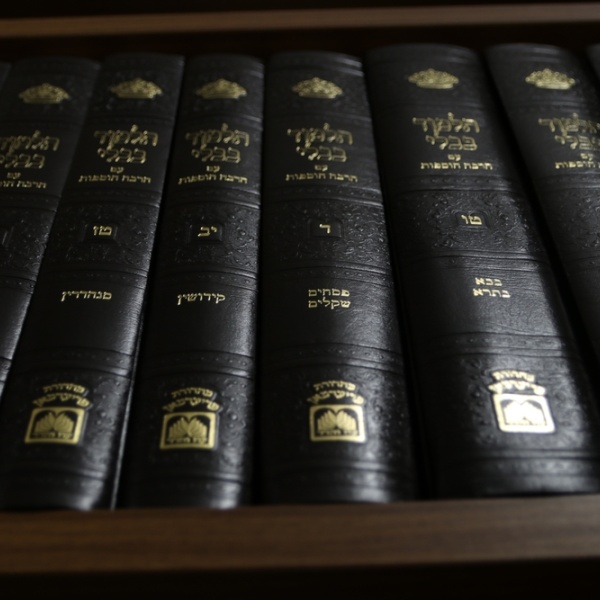
All of us are sinners. To be human means that we make mistakes, both inadvertent and intentional. Our tradition shows great respect for those who admit sin, even those who do not repent. They may be wrong in the eyes of Jewish law, but we can appreciate their honesty. Such cannot be said for those who feign an aura of piety, pretending to act in accordance with Jewish law as they manipulate it to serve their own needs.
It is for this reason that Jewish law distinguishes between a ganav, a thief who clandestinely steals, and a gazlan[1] who steals in the open. While a gazlan must repay only what he stole, effectively meaning there is no actual punishment, a ganav must pay kefel, double the amount stolen. At least the gazlan does not try to hide his criminality.
An interesting case of feigned piety relates to Yom Tov leftovers (who doesn’t have some of those?). Cooking is allowed on Yom Tov—provided that the food is necessary for Yom Tov itself. One may not take advantage of a day off work and spend the day cooking for an upcoming party. It was this fear that led our Sages to forbid cooking on Yom Tov even for Shabbat, “so that people will say, ‘one cannot cook from Yom Tov to Shabbat; how much more so from Yom Tov to a weekday!’” (Beitza 15b). Only if one prepared an eiruv tavshilin—where the Shabbat cooking was to begin before Yom Tov—could one continue cooking for Shabbat on Yom Tov. One who did not do so would have to make do with raw food on Shabbat.
What if one ignored this limitation and cooked for Shabbat despite not having made an eiruv tavshilin? Interestingly, the Gemara distinguishes between one who, without benefit of an eiruv tavshilin, openly and intentionally violates the prohibition of cooking and one who “clandestinely” prepares food for Shabbat. In the first case, we allow the food to be eaten, whereas in the second, we do not. “Subterfuge is different, and the rabbis were stricter with it than with intentional sin” (Beitza 17b). As Rashi notes, when one sins brazenly, there is little fear that others will be influenced. All recognize the wrong, and there is even a chance that the “sinner himself”, aware of his wrongdoing, might change his ways.
However, when one uses subterfuge—for example, using two pits to cook on the premise that unexpected guests may arrive—there is little chance of ever admitting wrong. We can convince ourselves of almost anything, and after all, guests may really come. Furthermore, others may copy this idea with little realization that there is anything wrong in such[2]. The cover-up really is worse than the crime itself.
Ha’aramah, subterfuge, should not be confused with the use of legal loopholes in Jewish law. First, legal loopholes are just that—legal—whereas ha’aramah actually violates the law, in such a way that it appears the law is being kept.
Nonetheless, legal loopholes often do not “smell right”, and can unfortunately lead some to ridicule the workings of Jewish law[3]. In an ideal world, it would be better if we did not have to use them. But we do not live in such a world, and these loopholes should be lauded for the creative ways they balance conflicting values. It would be better if one could dispose of all chametz before Pesach—but in an age of preservatives and freezers, not to mention Jews in the food business (or liquor), such is not feasible. Baal tashchit, the prohibition to cause unnecessary waste, is also an important value; and asking people to donate thousands of dollars of chametz is not a reasonable request.
While it would be very nice to lend money at no interest, such a request is unfeasible in a modern-day economy where millions are borrowed in order to make hundreds of millions. Already in the Gemara we have a relaxation of the rules of evidence, “so as not to close the door on borrowers” (Sanhedrin 2b). Our Sages understood the need to institute policies that lead to economic activity and growth. The heter iska, developed as the Industrial Revolution swept Europe, allows one to circumvent this law without violating its technical details. The technical details of how these loopholes work is beyond the scope of this article—suffice it to say that care must be taken to ensure the deal is properly structured so that we do not cross the line into subterfuge[4].
Jewish law acknowledges both the real and the ideal, and it is the task of our Sages to ensure that the proper balance between the two be properly maintained.
[1] The distinction between open and clandestine is not always so simple to define. Is one who secretly tells his friends that he does not declare all his income a ganav or a gazlan? Would putting on a facemask convert an armed robber from a gazlan to a ganav?
[2] It is for this reason that the white-collar criminal is a greater threat to society than the blue-collar thief. Very few will decide to rob a bank because some armed robber did so. Yet all too often, many will follow the lead of others who, in the comfortable setting of their offices, engage in various types of financial fraud.
[3] It is the keeping of letter of the law while ignoring its spirit that is the antithesis of holiness, and earns one the label of a naval b’reshut haTorah, a disgusting person with the permission of the Torah (see introductory comments of the Ramban to this week’s parsha).
[4] For example, when I worked in the pulpit and sold the chametz of members of my shul, I had a lawyer draw up a contract that would be enforceable in an Ontario court, and included a mechanism detailing how a potential dispute over valuation of the chametz would be resolved.
